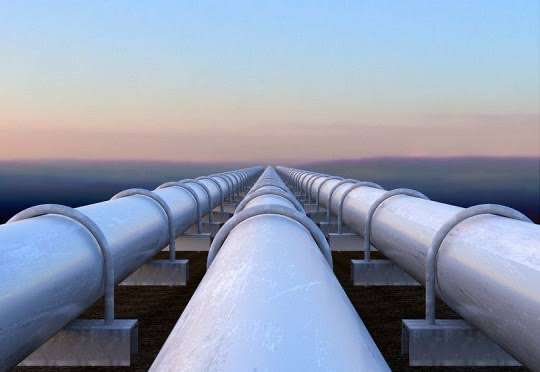Africa is on the verge of a major energy transformation, as Nigeria and Morocco intensify discussions to fast-track the process of achieving the Final Investment Decision (FID) on the $30bn Nigeria-Morocco Gas Pipeline. The pipeline, which will span 5,660 kilometers across 13 countries, is expected to deliver natural gas resources from Nigeria to Morocco and Europe, as well as boost regional integration and economic development.
The Nigeria-Morocco Gas Pipeline (NMGP) is a strategic project that was initiated in 2016 by President Muhammadu Buhari of Nigeria and King Mohammed VI of Morocco, as part of their vision to foster South-South cooperation and create a competitive regional power market. The project falls in line with the “Decade of Gas Master Plan” that Nigeria launched in 2020, which aims to monetize Nigeria’s gas resources, maintain its energy leadership in Africa, and promote a sustainable, clean-energy future.
The NMGP will also contribute to the realization of the African Continental Free Trade Area (AfCFTA), which came into effect in January 2021, by enhancing cross-border trade and infrastructure among African countries. According to the African Development Bank, the AfCFTA has the potential to increase intra-African trade by 52% by 2022 and lift 30 million Africans out of extreme poverty by 2035.
The latest discussions on the NMGP were held on Wednesday, January 24, 2024, on the sidelines of a meeting between the Ekperikpe Ekpo, Honourable Minister of State for Petroleum Resources (Gas), and Leila Benali, the Moroccan minister of energy Transition and Sustainable Development. The meeting was anchored by Olalekan Ogunleye, the NNPC Ltd.’s Executive Vice President, of Gas, Power & New Energy, and Mme Amina Benkhadra, the Director General of the Morocco National Office of Hydrocarbons and Mines (ONHYM).
According to a statement signed by Olufemi Soneye, chief corporate communications officer of the state-owned oil company, the talks focused on how to drive the partnership between the two countries to accelerate the NMGP in line with the series of Memoranda of Understanding (MoUs) signed between the two countries in Abuja in 2022. “Both parties emphasized the strategic importance of the project to the two countries and the entire African continent and the need to drive it to completion expeditiously in line to stem energy poverty on the African Continent,” the statement read.
The Cooperation Agreement for the 48” x 5,300Km pipeline from Nigeria to Dhakia (Morocco) and 1,700km from Dhakia to Northern Morocco was signed in 2017 with a capacity of 30 billion cubic meters (bcm) per year (the equivalent of 3.0 billion standard cubic feet of gas per day). The pipeline will traverse the Republic of Benin, Togo, Ghana, Cote d’Ivoire, Liberia, Sierra Leone, Guinea, Guinea-Bissau, Gambia, Senegal, and Mauritania, and terminate in Morocco with a spur to Spain.
The NMGP has received widespread support from various stakeholders, including the Economic Community of West African States (ECOWAS), the African Union, and the United Nations. Several countries along the pipeline route have also signed MoUs with Nigeria and Morocco to facilitate the project implementation. The project is estimated to cost $25bn and will be completed in stages over 25 years.
The NMGP is not only a game-changer for Africa’s energy sector, but also a catalyst for social and environmental benefits. The project will create thousands of jobs, improve access to electricity, reduce greenhouse gas emissions, and foster peace and stability in the region. As Africa gears up for a new era of trade and development, the NMGP is a shining example of how collaboration and innovation can unlock the continent’s potential and shape its future.
Source: Business Day



